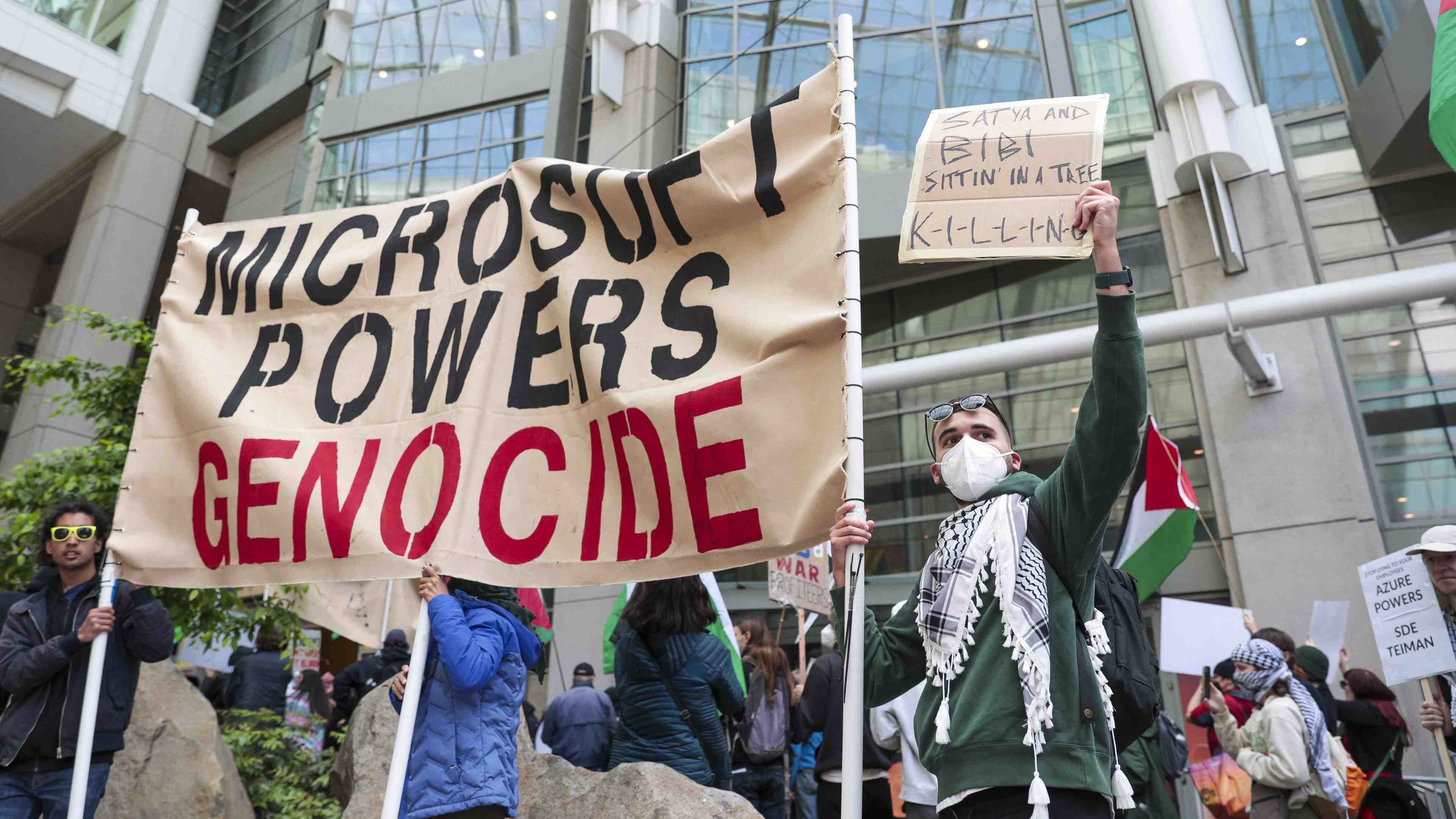Microsoft is facing new pushback over the Israeli military’s use of its AI and cloud products, as a group of more than 60 shareholders have filed a proposal calling on the company to publish a report assessing the effectiveness of its “human rights due diligence [HRDD] processes in preventing, identifying, and addressing customer misuse of Microsoft artificial intelligence and cloud products or services that violates human rights or international humanitarian law.”
“Microsoft states it conducts ongoing HRDD across its value chain, in line with its obligations under the UNGPs, but it neither explains its HRDD processes related to customer end use, nor reports on their effectiveness,” the resolution states. "Recent allegations of severe customer misuse suggest Microsoft’s HRDD may be ineffective.
"In the face of serious allegations of complicity in genocide and other international crimes, Microsoft’s HRDD processes appear ineffective. Microsoft recently published a statement responding to these allegations, explaining it conducted an internal review and commissioned a third-party firm to ‘undertake additional fact-finding,’ and concluding it ‘found no evidence to date that Microsoft’s Azure and AI technologies have been used to target or harm people in the conflict in Gaza.’
“The statement provides no additional information on the nature of the assessments, the definition of ‘harm,’ nor the identity of the external firm. Notably, the statement admits a significant gap in Microsoft’s HRDD: ‘Microsoft does not have visibility into how customers use our software on their own servers or other devices’.”
That statement, issued in May, followed a February 2025 AP report saying Israel’s use of Microsoft and OpenAI technology “skyrocketed” following the Hamas attack on Israel in October 2023, in which the group killed nearly 1,200 people and took 251 hostages. While IDF analysts “use AI-enabled systems to help identify targets,” according to the report, they also “independently examine them together with high-ranking officers to meet international law.”
But as Israel’s brutal assault against Gaza has raged on, leaving tens of thousands of innocent Palestinians dead, many have come to believe that concerns for international law have fallen by the wayside. A United Nations commission, for instance, found in October 2024 that “Israel has perpetrated a concerted policy to destroy Gaza’s healthcare system as part of a broader assault on Gaza, committing war crimes and the crime against humanity of extermination with relentless and deliberate attacks on medical personnel and facilities.”
The ongoing bloodshed, and growing awareness of Microsoft’s entanglements with the Israeli military, has drawn criticism and sparked protest, including from its own employees. In April, former Microsoft employee Ibtihal Aboussad—she was fired shortly after for her actions—interrupted the company’s 50th anniversary celebration to demand Microsoft “stop using AI for genocide”; larger protests occurred both inside and outside Microsoft’s Build conference in May. Art rock legend Brian Eno, creator of the Windows 95 startup jingle, also spoke out against the company in May, with a pointed statement calling on Microsoft to sever its ties with Israel: “If you knowingly build systems that can enable war crimes, you inevitably become complicit in those crimes.”
Today’s resolution represents an escalation of those protests. The shareholders involved represent more than $80 million worth of Microsoft shares, which is both an awful lot of money but also a tiny slice of Microsoft’s total valuation. But Rewan Haddad, campaign director at consumer watchdog organization Eko, said the number and diversity of co-filers attached to the resolution—the largest number of co-filers on a single Microsoft shareholders resolution ever, according to the org— “shows the scale of shareholder frustration with Microsoft.”
That’s also reflected in the resolution itself, which notes that “Inadequate HRDD exposes Microsoft to material legal, operational, and reputational risks,” all of which can negatively impact shareholder value. That’s pure business-speak, and definitely a concern for shareholders whose primary concern is money (ie., most of them), but the Religious of the Sacred Heart of Mary, the lead filer of the resolution, said in a statement that “the moral issue is paramount.”
This isn’t the first time the Religious of the Sacred Heart of Mary has led shareholder action over Microsoft’s treatment of human rights: In 2021 it was the lead filer on a shareholder proposal calling on the company to evaluate “human rights commitments” with regard to “the development of products, contracts, and business relationships with government agencies, including law enforcement, that create a high risk of adverse human rights impacts.” Microsoft agreed to do so in October 2021.
The shareholder resolution calling for a report on Microsoft’s human rights due diligence processes will be voted on at the company’s Annual General Meeting, which will be held later this year. I’ve reached out to Microsoft for comment and will update if I receive a reply.
From PCGamer latest via this RSS feed


